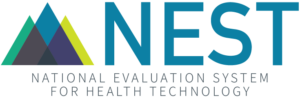November 12, 2020
The second session at the NEST Forum outlined the results of the NESTcc Test-Case exploring the feasibility of using real-world data (RWD) in the evaluation of cardiac ablation catheters. The standard treatment for cardiac arrhythmias includes cardiac ablation with a catheter to destroy a small area of heart tissue that is causing rapid and irregular heartbeats. Catheters have been generally approved by the FDA for use in the treatment of specific cardiac arrhythmias, such as paroxysmal atrial fibrillation and ischemic ventricular tachycardia. Catheters vary in which of these cardiac arrhythmias the FDA has approved their use. There are currently no catheters that are indicated for the treatment of persistent atrial fibrillation.
This Test-Case evaluated data relevance and reliability to assess if RWD would be “fit for purpose” for regulatory submission supporting a potential study for label expansion. Project team leaders discussed the findings of the study and their relevance to the medical device ecosystem.
Here are a few of the key takeaways:
Electronic health records (EHR) data can be used to assess the performance of medical devices used in clinical practice.
This Test-Case confirmed that it is possible to use EHR data for label expansions of pre-market approval devices (PMA) and by extension. The study revealed that unique devices, such as cardiac ablation catheters, could be identified in electronic health records (EHR) systems, though data extraction method developed by each health care system since they each captured unique device identifiers (UDIs) differently. As the principal investigator of this Test-Case, Dr. Joseph Drozda, observed, “The unique device identifiers…can be used in multiple health systems, but there are different approaches as we as we illustrated earlier, to get you to the same result.”
A multi-disciplinary team is vital for distributed data networking studies.
Dr. Shumin Zhang of Johnson & Johnson discussed the diverse team of experts that came together to work on this study, “We have formed a cross-institutional team to execute the study. Team members have strong expertise in epidemiology, real-world data science, cardiology, electrophysiology, regulatory affairs, and about informatics and the experience in distributed data networking studies.”
This NEST Test-Case supports the use of RWD to evaluate cardiac devices.
This Test-Case made significant progress in characterizing the validity of RWD as a tool in label expansion studies. Mark Fellman of the FDA stated, “RWE is an economic way to gather evidence to support regulatory submissions…. I personally have seen increased use of real-world evidence in each of these areas for cardiac devices, specifically for cardiac patient technology. The reason why I’ve seen these increases for publication is that real–world evidence is particularly well–suited for devices intended to treat cardiac arrhythmias.”
The objectives of this Test-Case were to assess the feasibility of using real-world data in the evaluation of cardiac ablation catheters and to validate the data capture process of Class III surgical devices to study the safety and effectiveness outcomes surrounding an indication expansion. Ultimately, this Test-Case demonstrated that it is feasible to use RWD to assess the safety and performance of cardiac medical devices. Based on the progress made in characterizing the validity of the data for label expansion studies, the Test-Case has advanced to Phase Two, where the goal is to translate the feasibility study advances to an actual label change study.
View the recording of this Test-Case presentation from the NEST Forum.
For more information on this Test-Case, download the case study.
The NEST Forum shared insights and perspectives on NEST’s use of real-world data to move safety and innovation forward and help change the paradigm of clinical research. We are grateful for the medical device ecosystem leaders who joined us and look forward to continued conversation and collaboration on issues of pressing importance to health care.
All session recordings are available on the NEST Forum event page.


